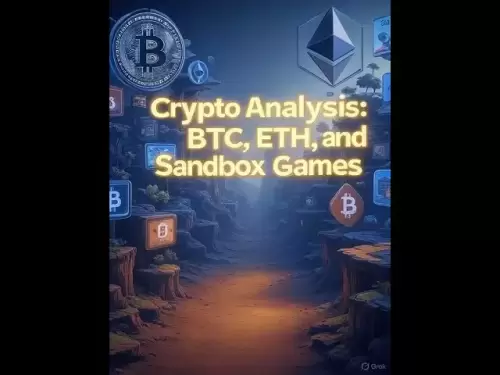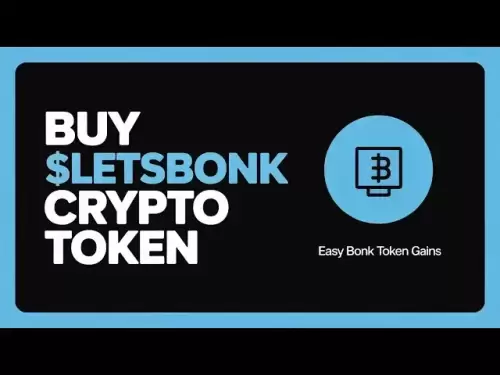-
 Bitcoin
Bitcoin $117600
-0.94% -
 Ethereum
Ethereum $3567
4.03% -
 XRP
XRP $3.422
5.29% -
 Tether USDt
Tether USDt $1.001
0.05% -
 BNB
BNB $741.2
2.18% -
 Solana
Solana $177.2
1.33% -
 USDC
USDC $0.9998
-0.01% -
 Dogecoin
Dogecoin $0.2432
13.70% -
 TRON
TRON $0.3277
3.88% -
 Cardano
Cardano $0.8322
3.44% -
 Hyperliquid
Hyperliquid $44.93
-3.85% -
 Stellar
Stellar $0.4712
0.77% -
 Sui
Sui $3.866
-3.70% -
 Chainlink
Chainlink $18.07
5.32% -
 Hedera
Hedera $0.2688
9.36% -
 Bitcoin Cash
Bitcoin Cash $515.8
3.87% -
 Avalanche
Avalanche $23.95
4.68% -
 Shiba Inu
Shiba Inu $0.00001493
3.69% -
 UNUS SED LEO
UNUS SED LEO $8.921
0.92% -
 Toncoin
Toncoin $3.235
0.73% -
 Litecoin
Litecoin $104.5
3.15% -
 Polkadot
Polkadot $4.335
2.58% -
 Uniswap
Uniswap $10.29
14.69% -
 Monero
Monero $330.8
-2.86% -
 Bitget Token
Bitget Token $4.904
2.83% -
 Ethena USDe
Ethena USDe $1.001
0.09% -
 Pepe
Pepe $0.00001336
-2.18% -
 Dai
Dai $0.9999
0.01% -
 Aave
Aave $320.5
-1.28% -
 Cronos
Cronos $0.1189
6.16%
How does crypto relate to the metaverse
Cryptocurrencies enable secure, decentralized transactions in the metaverse, empowering users to own and trade digital assets like virtual land and NFTs.
Jul 14, 2025 at 02:28 pm
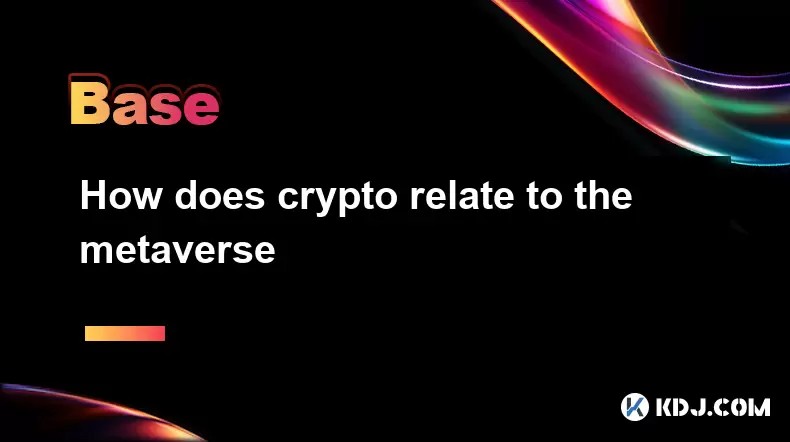
Understanding the Metaverse Concept
The metaverse refers to a collective virtual shared space created by the convergence of virtually enhanced physical reality and persistent virtual spaces. It includes augmented reality (AR), virtual reality (VR), and the internet. Within this digital universe, users can interact with each other and their surroundings in real-time. The idea is not entirely new but has gained momentum due to advancements in blockchain technology, especially cryptocurrencies.
In the metaverse, digital ownership, identity, and transactions become crucial. This is where cryptocurrencies play a pivotal role. They offer a decentralized means of exchanging value without relying on intermediaries. Users can own digital assets like land, avatars, or even virtual goods through blockchain-based tokens.
The Role of Blockchain in the Metaverse
At the heart of the relationship between crypto and the metaverse lies blockchain technology. It provides the infrastructure needed for secure, transparent, and immutable transactions within virtual environments. Unlike traditional online platforms, where data and assets are controlled by centralized entities, blockchain allows for true digital ownership.
- Smart contracts enable automated agreements between parties without third-party intervention.
- Decentralized applications (dApps) allow users to interact with the metaverse seamlessly.
- Non-fungible tokens (NFTs) represent unique digital assets that can be bought, sold, or traded in the metaverse.
These elements ensure that users have control over their digital identities and properties, fostering trust and interoperability across different platforms.
Cryptocurrency as a Medium of Exchange
In the metaverse, cryptocurrencies serve as the primary medium of exchange. Traditional fiat currencies often come with limitations such as transaction fees, regulatory oversight, and conversion issues across borders. Cryptocurrencies overcome these barriers by enabling peer-to-peer transactions globally.
- Platforms like Decentraland and The Sandbox use native tokens such as MANA and SAND for purchasing virtual land and items.
- Users can earn cryptocurrency by participating in metaverse activities, such as creating content or offering services.
- Cross-platform compatibility allows for seamless movement of funds and assets between different metaverse environments.
This financial layer enables an economy where digital labor, creativity, and entrepreneurship thrive independently of geographical constraints.
NFTs and Digital Ownership
One of the most significant intersections between crypto and the metaverse is through non-fungible tokens (NFTs). These tokens represent ownership of unique digital items, ranging from virtual real estate to clothing for avatars. NFTs are essential because they provide verifiable proof of ownership and authenticity.
- Each NFT is stored on the blockchain, ensuring it cannot be duplicated or altered.
- Users can buy, sell, or trade NFTs on marketplaces integrated into metaverse platforms.
- Creators retain royalties from secondary sales, incentivizing ongoing participation in the ecosystem.
NFTs also enable cross-metaverse experiences, where a digital item purchased in one environment can be used in another, enhancing user engagement and platform interoperability.
Decentralized Governance and Community Building
Crypto introduces the concept of decentralized governance, allowing users to participate in decision-making processes within the metaverse. Through token-based voting systems, community members can influence platform development, rules, and policies.
- Token holders propose and vote on changes, ensuring democratic management.
- Transparency is maintained through public blockchain records of all decisions.
- Incentive structures encourage active participation and long-term commitment to the ecosystem.
This model contrasts sharply with traditional online platforms, where governance is typically opaque and controlled by corporate interests. In the metaverse, users collectively shape the environment, leading to more inclusive and user-centric development.
Frequently Asked Questions
What are some popular metaverse platforms that integrate cryptocurrency?
Several platforms have embraced crypto and blockchain technology. Notable examples include Decentraland, The Sandbox, and Axie Infinity. These platforms utilize native tokens for transactions, NFTs for asset ownership, and decentralized governance models to engage their communities.
Can I use any cryptocurrency in the metaverse?
While some platforms accept multiple cryptocurrencies, most require the use of their native tokens for specific transactions. For instance, Decentraland uses MANA, while The Sandbox operates with SAND. However, certain marketplaces may support widely accepted tokens like Ethereum or USDT for broader accessibility.
Is my digital property safe in the metaverse?
Blockchain technology ensures that your digital property is secured through cryptographic methods. Since NFTs are recorded on the blockchain, they are resistant to fraud and tampering. However, it's essential to store private keys securely and use trusted wallets to prevent unauthorized access.
How do I start participating in the metaverse using crypto?
To begin, you'll need to:
- Choose a metaverse platform that aligns with your interests.
- Acquire the platform’s native cryptocurrency through exchanges or direct purchases.
- Set up a compatible wallet to store your tokens and NFTs.
- Explore the virtual environment, purchase assets, and engage with the community.
Each step requires careful consideration to ensure a smooth and secure experience.
Disclaimer:info@kdj.com
The information provided is not trading advice. kdj.com does not assume any responsibility for any investments made based on the information provided in this article. Cryptocurrencies are highly volatile and it is highly recommended that you invest with caution after thorough research!
If you believe that the content used on this website infringes your copyright, please contact us immediately (info@kdj.com) and we will delete it promptly.
- Giants Protocol's G Token Live Launch: What You Need to Know
- 2025-07-18 21:30:13
- Solana, Rollblock, and the Gaming Token Revolution: What's Hot Now?
- 2025-07-18 22:10:13
- Crypto 2025: Will the Bull Run Be Led by Ethereum?
- 2025-07-18 22:10:13
- XRP, Dogecoin, and Crypto Bills: What's Shaking in the Crypto World?
- 2025-07-18 20:50:13
- Trump, Family Business, and Power: A New Era of Conflicts?
- 2025-07-18 20:30:12
- Trump, Business, & Bitcoin: A Crypto Capitalist's Vision
- 2025-07-18 20:40:12
Related knowledge
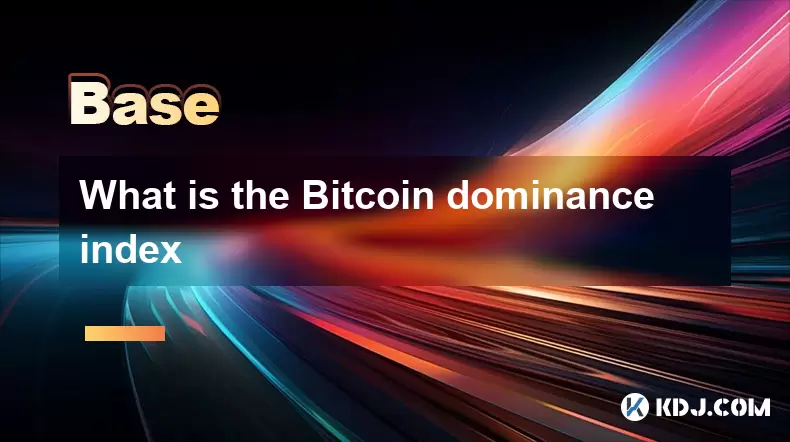
What is the Bitcoin dominance index
Jul 12,2025 at 10:35pm
Understanding the Bitcoin Dominance IndexThe Bitcoin Dominance Index, often abbreviated as BTC.D, is a metric used to measure Bitcoin's market capital...
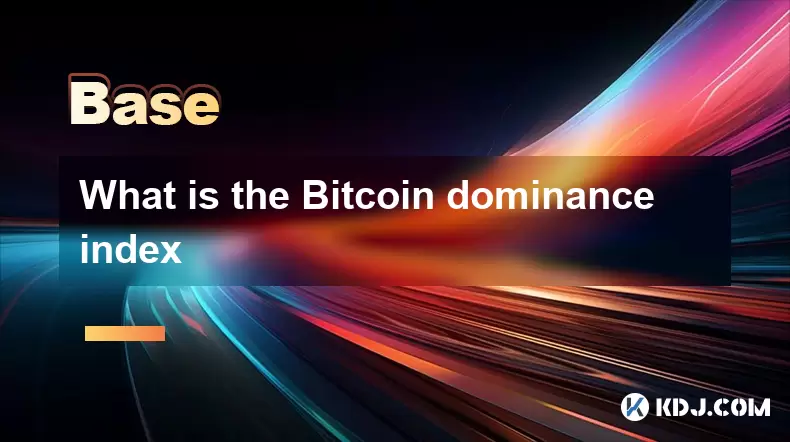
What is the Bitcoin dominance index
Jul 11,2025 at 04:29am
What is the Bitcoin Dominance Index?The Bitcoin Dominance Index is a metric used to gauge Bitcoin's market capitalization relative to the total market...
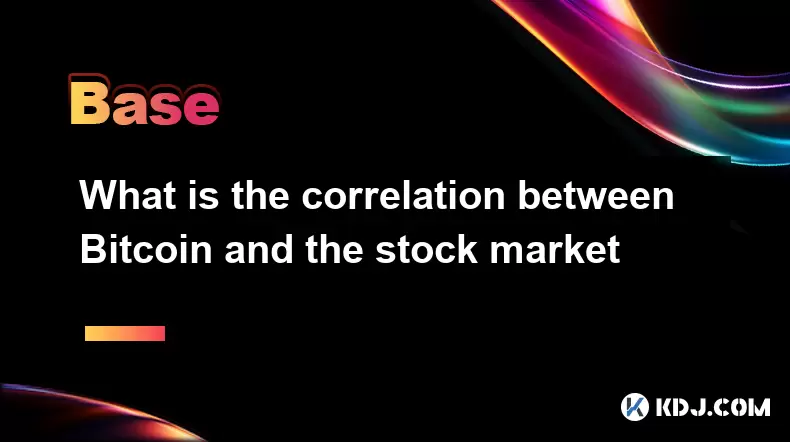
What is the correlation between Bitcoin and the stock market
Jul 18,2025 at 04:56am
Understanding the Correlation Between Bitcoin and the Stock MarketThe correlation between Bitcoin and the stock market has become a topic of increasin...
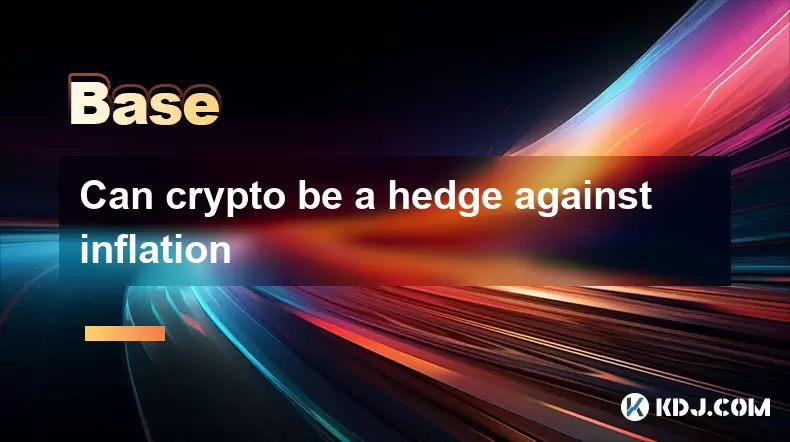
Can crypto be a hedge against inflation
Jul 14,2025 at 12:21am
Understanding the Concept of Hedging Against InflationInflation refers to the general increase in prices and fall in the purchasing value of money ove...
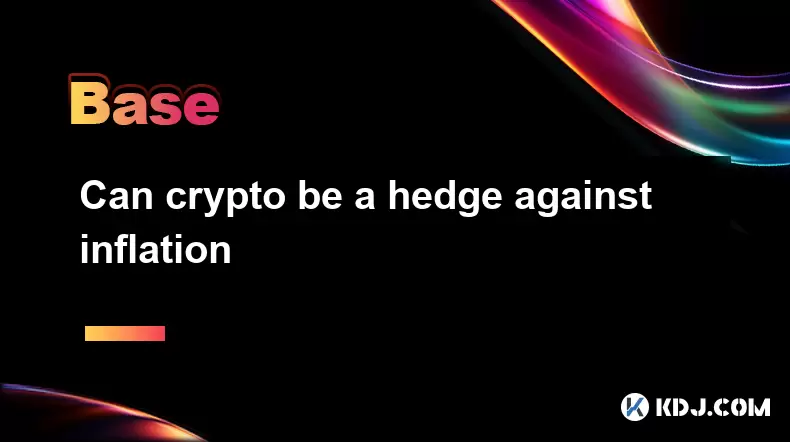
Can crypto be a hedge against inflation
Jul 12,2025 at 12:07pm
Understanding the Role of Blockchain in Decentralized Finance (DeFi)Blockchain technology serves as the backbone of decentralized finance, offering a ...
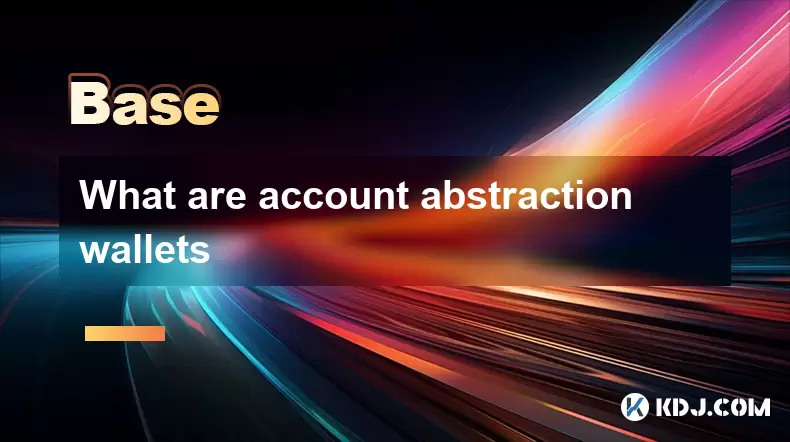
What are account abstraction wallets
Jul 13,2025 at 01:43am
Understanding the Concept of Account AbstractionAccount abstraction is a term frequently used in the Ethereum ecosystem, particularly within discussio...

What is the Bitcoin dominance index
Jul 12,2025 at 10:35pm
Understanding the Bitcoin Dominance IndexThe Bitcoin Dominance Index, often abbreviated as BTC.D, is a metric used to measure Bitcoin's market capital...

What is the Bitcoin dominance index
Jul 11,2025 at 04:29am
What is the Bitcoin Dominance Index?The Bitcoin Dominance Index is a metric used to gauge Bitcoin's market capitalization relative to the total market...

What is the correlation between Bitcoin and the stock market
Jul 18,2025 at 04:56am
Understanding the Correlation Between Bitcoin and the Stock MarketThe correlation between Bitcoin and the stock market has become a topic of increasin...

Can crypto be a hedge against inflation
Jul 14,2025 at 12:21am
Understanding the Concept of Hedging Against InflationInflation refers to the general increase in prices and fall in the purchasing value of money ove...

Can crypto be a hedge against inflation
Jul 12,2025 at 12:07pm
Understanding the Role of Blockchain in Decentralized Finance (DeFi)Blockchain technology serves as the backbone of decentralized finance, offering a ...

What are account abstraction wallets
Jul 13,2025 at 01:43am
Understanding the Concept of Account AbstractionAccount abstraction is a term frequently used in the Ethereum ecosystem, particularly within discussio...
See all articles
























